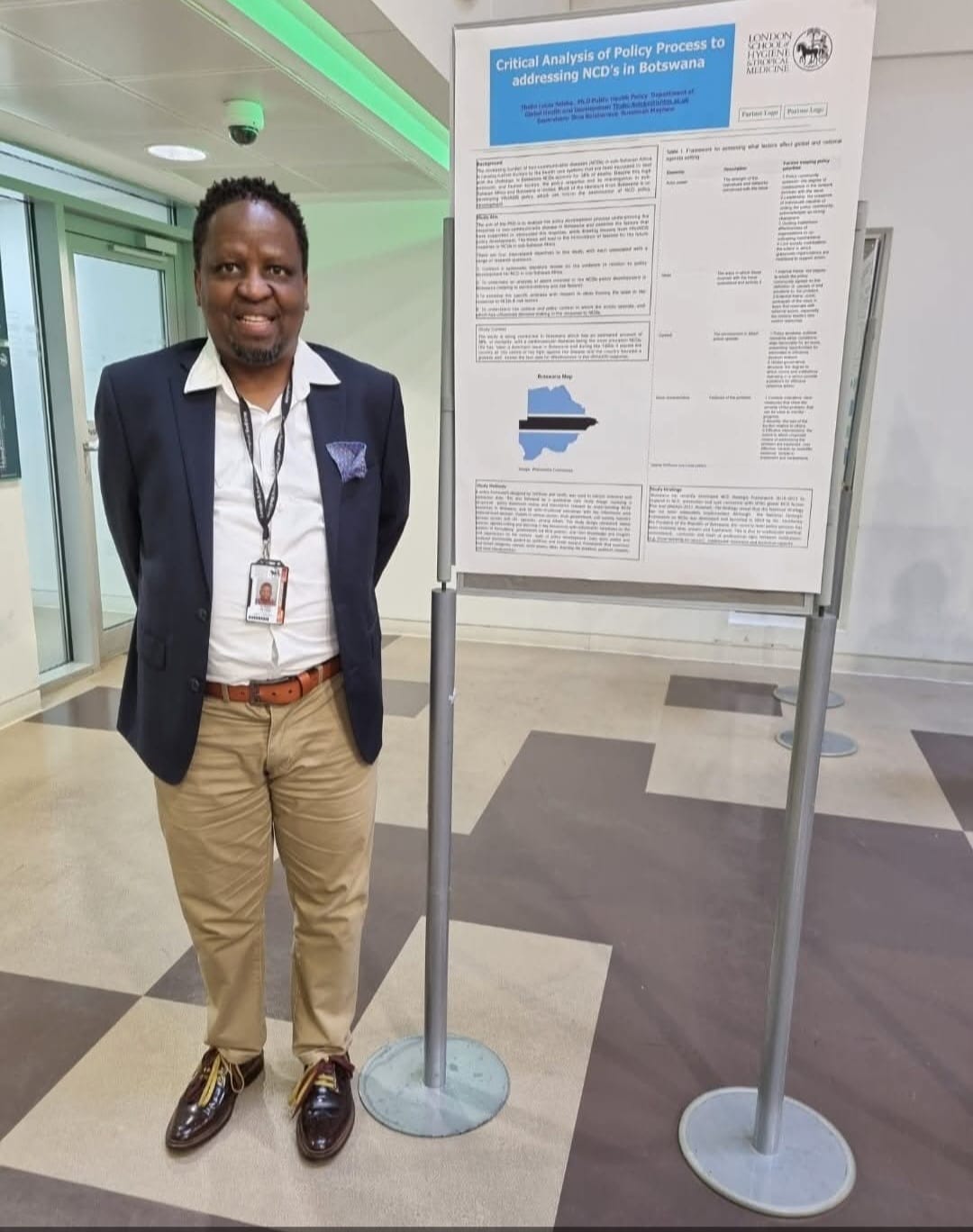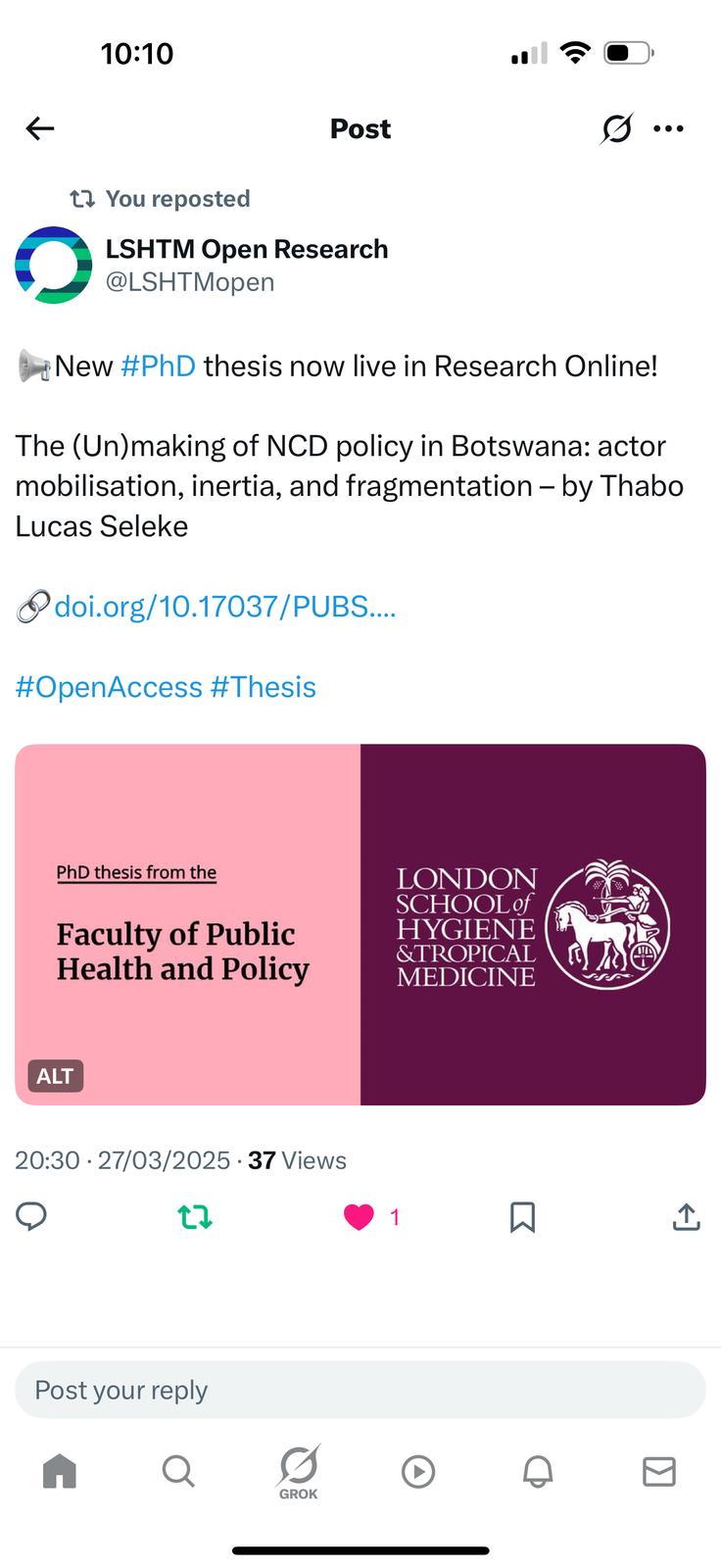Dr Thabo Seleke’s Groundbreaking Research Live on Twitter, Reshapes Botswana’s NCD Policy Discourse
 Dr Thabo Lucas Seleke's Ph.D. thesis, titled "The (Un)making of NCD Policy in Botswana: Actor Mobilisation, Inertia and Fragmentation," is now live on X (formerly Twitter), following its impressive endorsement by the London School of Hygiene and Tropical Medicine, Faculty of Public Health and Policy. Dr Seleke’s work is a landmark achievement in that it is the first of its kind in Botswana, the fourth in Africa and the first on the continent to employ qualitative research methods. The thesis will not only fuel vital discussions but also significantly impact and inspire further research within academic circles, captivating and challenging all who engage with it.
Dr Thabo Lucas Seleke's Ph.D. thesis, titled "The (Un)making of NCD Policy in Botswana: Actor Mobilisation, Inertia and Fragmentation," is now live on X (formerly Twitter), following its impressive endorsement by the London School of Hygiene and Tropical Medicine, Faculty of Public Health and Policy. Dr Seleke’s work is a landmark achievement in that it is the first of its kind in Botswana, the fourth in Africa and the first on the continent to employ qualitative research methods. The thesis will not only fuel vital discussions but also significantly impact and inspire further research within academic circles, captivating and challenging all who engage with it.
It seeks to examine the effectiveness of efforts to address non-communicable diseases (NCDs) in Botswana including cardiovascular disease, diabetes, chronic respiratory disease and cancer, along with associated risk factors such as alcohol and tobacco use.
The thesis examines whether such initiatives have been able to build upon and leverage the successes and learning from the country’s HIV response particularly given the growing burden of NCDs.
 Dr Seleke's passion for health policy and systems research earned him the prestigious Fulbright Scholarship which enabled him to pursue an MSc in International Health Policy and Management at Boston University in Massachusetts, USA. He also holds the Duke University Sanford School of Global Health Fellowship. He has been affiliated with the WHO headquarters in Geneva, Switzerland, working within the Department of Pandemic and Epidemic Diseases Policy Unit.
Dr Seleke's passion for health policy and systems research earned him the prestigious Fulbright Scholarship which enabled him to pursue an MSc in International Health Policy and Management at Boston University in Massachusetts, USA. He also holds the Duke University Sanford School of Global Health Fellowship. He has been affiliated with the WHO headquarters in Geneva, Switzerland, working within the Department of Pandemic and Epidemic Diseases Policy Unit.
Dr Seleke’s training includes "Ethical Issues in International Health Research" at the Harvard T.H. Chan School of Public Health and "Advanced Qualitative Research Methods" at King's College, London. In addition, he has participated in the Global Leadership Training Programme for Sustainable Development in Africa. He has foundational training in epidemiology and medical statistics from the Medical Research Council in The Gambia.
Dr Seleke’s thesis is expected to catalyse critical discussions and inspire further exploration within the academic community, making it a key contribution to the discourse on health policy in Botswana and beyond.